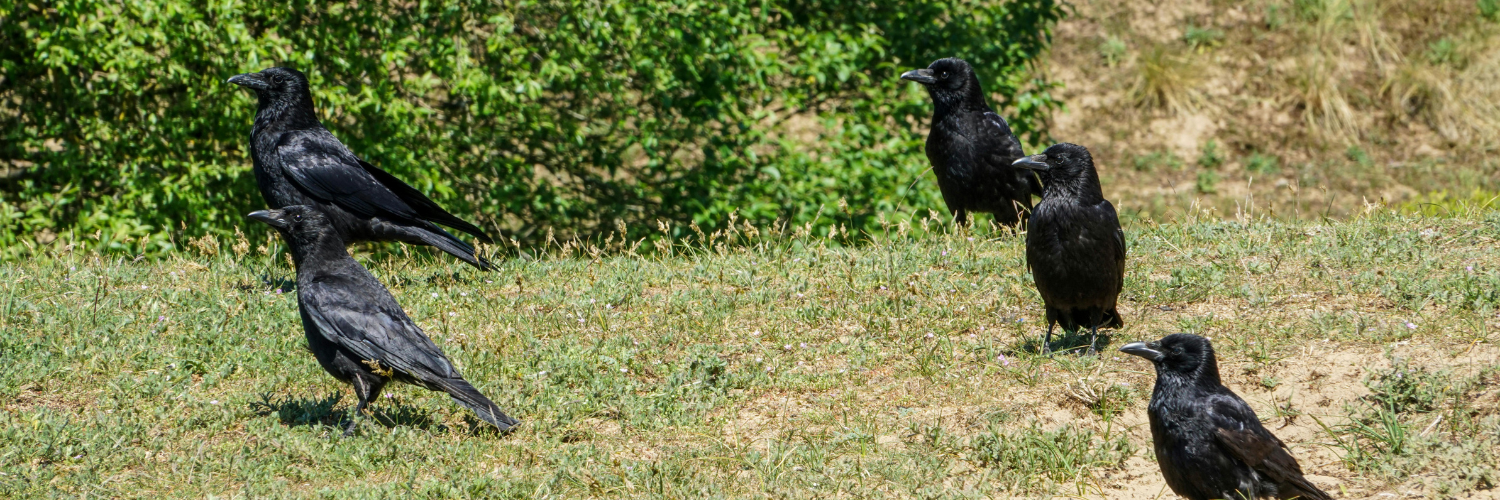Discovering sick or dead birds or other wildlife can be distressing, but it’s important to handle the situation properly to ensure your safety and help protect other animals. Here’s a comprehensive guide on what to do.
Lately there have been a number of posts by community members who have noticed or found dead birds. There are several possible reasons for this, but Washington state does monitor for bird diseases including avian flu. If you find a dead bird, particularly a crow, raven, or raptor; or if you have backyard chickens that die for no apparent reason, please report this to one of the following

1. Avoid Contact
- Safety First: Never touch or handle sick or dead wildlife. These animals may carry diseases that can be transmitted to humans and pets. Common diseases include avian influenza and West Nile virus, which can be harmful.
- Keep Your Distance: Observe the animal from a safe distance. This prevents disturbing the wildlife and reduces the risk of spreading any potential diseases to yourself or others.
2. Report Sick or Dead Birds
- Contact Authorities: If you find sick or dead birds, it’s crucial to report them to the Washington State Department of Agriculture’s Avian Health Program. You can reach them at 1-800-606-3056. Prompt reporting helps track potential disease outbreaks and protects other wildlife. Detailed information such as the number of birds, their species, and the location can be very helpful to authorities. Visit this link to report birds you believe could have Avian influenza (bird flu).
- Why Reporting Matters: Reporting these incidents helps wildlife authorities monitor the health of bird populations and investigate possible causes of illness or death. This information can be vital in preventing the spread of diseases that may also affect other animals and humans.
- Stop Feeding: If you are finding dead or sick song birds in your yard, please take down any feeders and stop providing a shared water source for at least 4 weeks. This will allow the birds to disperse and reduce the transmission of the illness.
3. Report Sick or Dead Domestic Animals
- Online Reporting: For sick or dead domestic animals, use the Washington State Department of Agriculture’s online reporting form. Visit this link to complete the form. Providing accurate and detailed information helps authorities manage and respond to animal health issues effectively.
- Report dead or sick wild birds, particularly crows, ravens or raptors to the Dept of Fish and Wildlife using the form at the following link. https://wdfw.wa.gov/species-habitats/diseases/bird-flu
- Details to Include: When reporting, include as much information as possible, such as the type of animal, symptoms observed, location, and any potential contact with other animals or humans.
4. General Precautions
- Educate Yourself and Others: Learn about common wildlife diseases in your area and share this knowledge with others. Awareness can lead to quicker responses and better protection for both humans and animals.
- Protect Pets: Keep pets away from sick or dead wildlife to prevent them from contracting diseases. If your pet comes into contact with a sick or dead animal, consult a veterinarian immediately.
5. Environmental Responsibility
- Dispose of Dead Wildlife Properly: If you need to dispose of a dead animal, follow local guidelines. Wear gloves and use tools to avoid direct contact. Place the animal in a plastic bag, seal it, and dispose of it according to local health regulations. Wash your hands thoroughly afterward.
- Monitor Your Surroundings: Keep an eye on wildlife in your area. Regular observation can help detect unusual behavior or disease outbreaks early, allowing for timely intervention.
By following these steps, you help safeguard the health of wildlife and domestic animals, and protect public health as well. Your actions play a crucial role in maintaining a healthy environment for all creatures, contributing to the overall well-being of our ecosystem.
